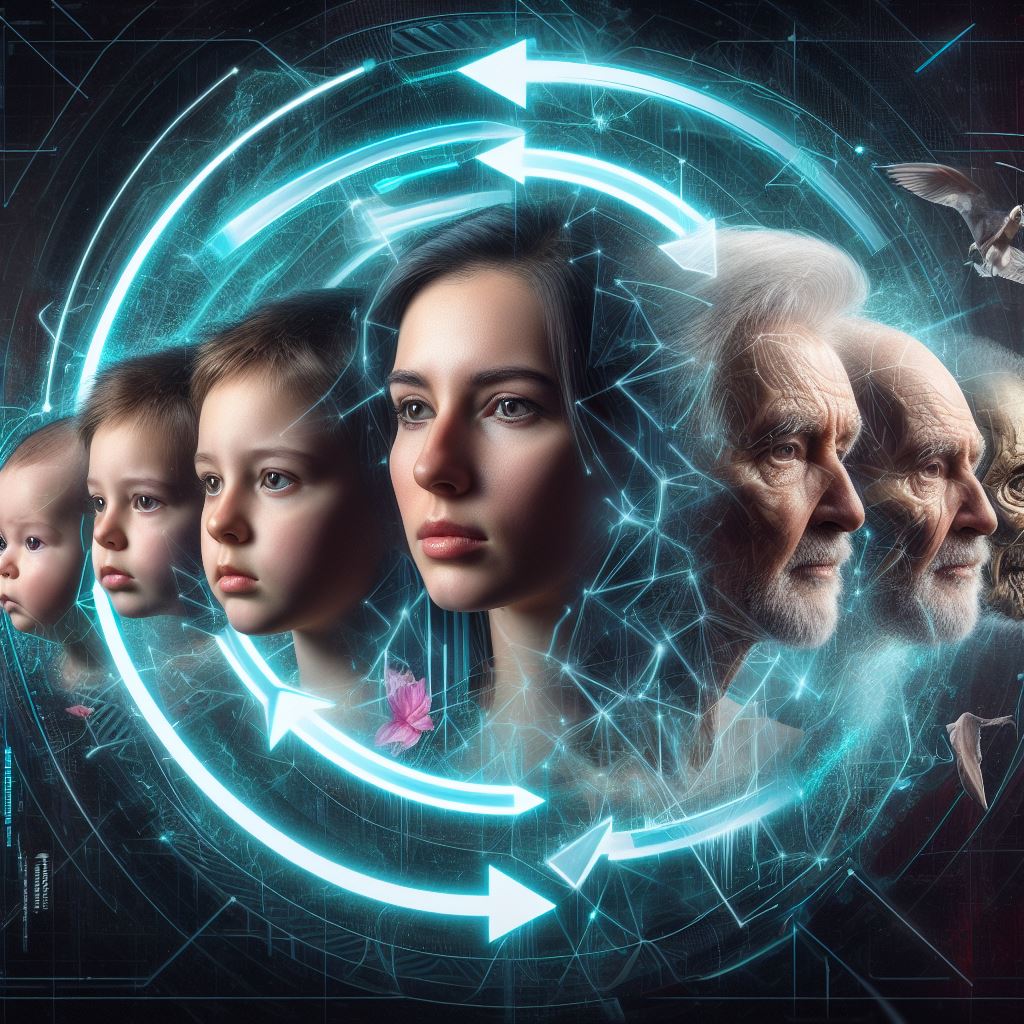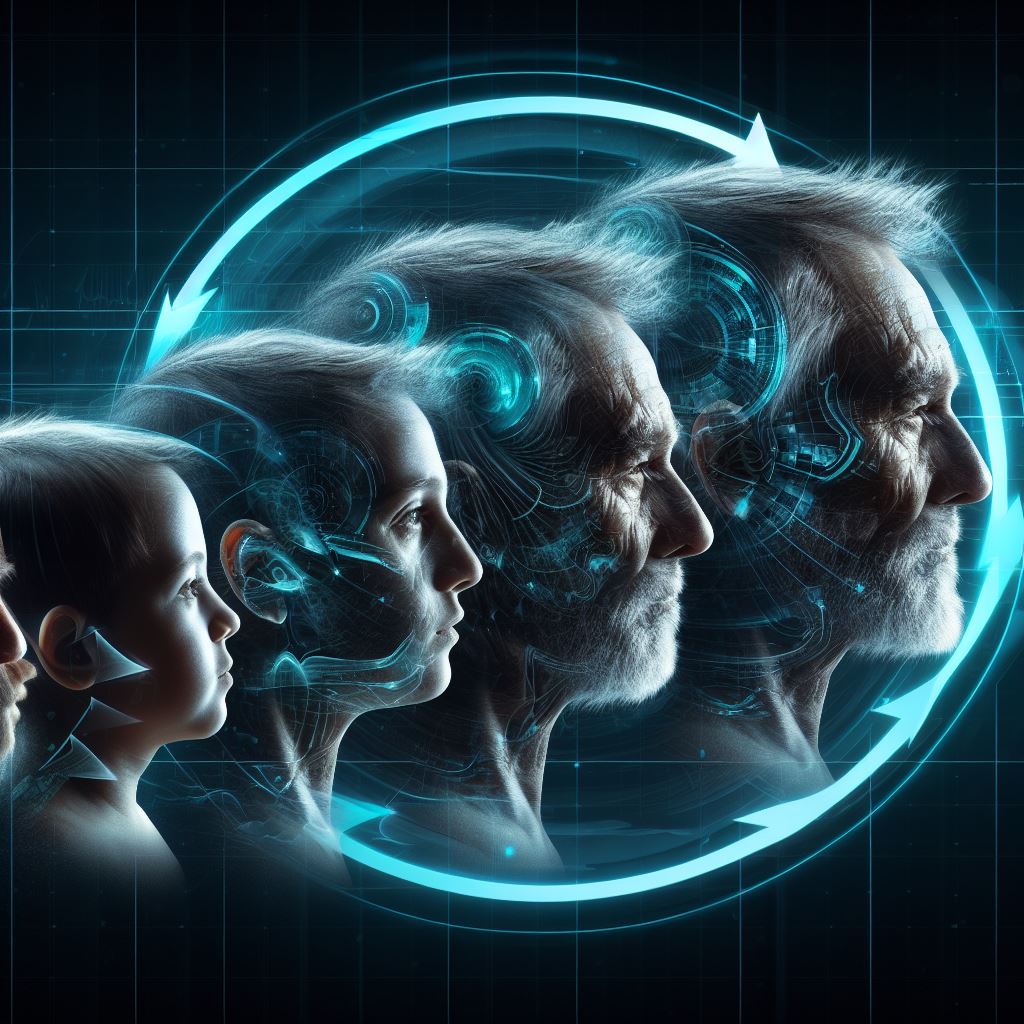
Age reversal is the process of reversing the biological aging process. This can be done at the cellular level, by reprogramming cells to a younger state, or at the whole-body level, by repairing age-related damage to tissues and organs.
There are a number of different approaches to age reversal, some of which are more promising than others. One approach is to use gene therapy to deliver genes that code for youthful proteins to old cells. Another approach is to use stem cells to replace damaged or aged cells. Still other approaches focus on targeting the underlying causes of aging, such as cellular senescence and epigenetic changes.
While there is no single cure for aging, there has been significant progress in the field of age reversal in recent years. A number of promising therapies are currently in clinical trials, and it is possible that we will see effective age reversal treatments become available in the next decade or two.
Is it possible to reverse the age?

it is important to clarify that complete and effective “age reversal” as it is often portrayed in science fiction or popular culture does not currently exist. Aging is a complex biological process influenced by various genetic, environmental, and lifestyle factors, and reversing it entirely is beyond our current scientific capabilities.
However, there is ongoing research in the field of aging and longevity aimed at extending healthy lifespan and mitigating the effects of aging-related diseases. Some areas of research and emerging technologies that may contribute to healthier aging include:
- Regenerative Medicine: Stem cell therapy and regenerative medicine show promise in repairing and replacing damaged tissues and organs, potentially improving the health and function of aging individuals.
- Genetic Interventions: Scientists are exploring genetic modifications and interventions to address age-related diseases and conditions.
- Caloric Restriction and Diet: Caloric restriction and specific diets have shown potential to slow down the aging process and improve healthspan in various animal studies.
- Senescence and Senolytics: Senescence is a cellular state associated with aging. Senolytics are drugs that target senescent cells and may have the potential to delay or mitigate aging-related conditions.
- Anti-Aging Therapies: Some anti-aging treatments, such as certain supplements and skin-care products, claim to reduce the visible signs of aging, although their effectiveness varies and is often debated.
- Lifestyle Factors: Maintaining a healthy lifestyle with a balanced diet, regular exercise, stress management, and avoiding harmful habits like smoking can significantly impact one’s overall health and aging process.
What is the breakthrough in age reversal?
The most significant breakthrough in age reversal to date is the discovery of a chemical cocktail that can reverse aging in mice within a week. This cocktail was developed by researchers at Harvard Medical School, and it was published in the journal Aging in July 2023.
The cocktail contains six different drugs, all of which are already approved for other uses in humans. The drugs target different aspects of the aging process, including cellular senescence, epigenetic changes, and mitochondrial dysfunction.
In the study, the researchers administered the cocktail to old mice for one week. At the end of the week, the mice showed significant improvements in a number of age-related markers, including muscle strength, skin elasticity, and cognitive function. The mice also lived longer than control mice.
The researchers are now planning to test the cocktail in humans. If the cocktail is safe and effective in humans, it could revolutionize the way we treat aging and age-related diseases.
Another promising breakthrough in age reversal is the development of senolytic drugs. Senolytic drugs are a new class of drugs that target and destroy senescent cells. Senescent cells are damaged or aged cells that can accumulate in tissues and organs over time and contribute to age-related decline.
Senolytic drugs have been shown to improve health and lifespan in animal studies, and clinical trials are underway to test their safety and efficacy in humans. One senolytic drug, called fisetin, has been shown to improve cognitive function in older adults with mild cognitive impairment.

How can I reverse my age on a diet?
While there is no single cure for aging, there has been significant progress in the field of age reversal in recent years. A number of promising therapies are currently in clinical trials, and it is possible that we will see effective age reversal treatments become available in the next decade or two.
Here are some of the most promising age reversal therapies currently in development:
- Senolytic drugs: Senolytic drugs are a new class of drugs that target and destroy senescent cells. Senescent cells are damaged or aged cells that can accumulate in tissues and organs over time and contribute to age-related decline. Senolytic drugs have been shown to improve health and lifespan in animal studies, and clinical trials are underway to test their safety and efficacy in humans.
- Epigenetic modifiers: Epigenetic changes are changes in gene expression that are not caused by changes in the DNA sequence itself. Epigenetic changes can accumulate over time and contribute to aging. Epigenetic modifiers are drugs that can reverse epigenetic changes and restore youthful gene expression. Clinical trials are underway to test the safety and efficacy of epigenetic modifiers for a variety of age-related diseases.
- Stem cell therapy: Stem cells are undifferentiated cells that can develop into any type of cell in the body. Stem cell therapy involves transplanting stem cells into damaged or aged tissues to repair or replace them. Stem cell therapy has been shown to be effective for treating a variety of age-related diseases, and clinical trials are underway to test its safety and efficacy for whole-body age reversal.
It is important to note that age reversal is still in its early stages of development. There are no currently available treatments that have been proven to safely and effectively reverse aging in humans. However, the progress that has been made in recent years is promising, and it is possible that we will see effective age reversal treatments become available in the next decade or two.
In addition to the therapies listed above, there are a number of lifestyle changes that can help to slow down the aging process and promote longevity. These changes include:
- Eating a healthy diet rich in fruits, vegetables, and whole grains
- Exercising regularly
- Getting enough sleep
- Managing stress
- Avoiding smoking and excessive alcohol consumption
While it’s not possible to reverse your biological age through diet in the sense of turning back the clock, adopting a healthy diet can help promote a more youthful and vibrant appearance, support overall well-being, and potentially slow down some of the visible signs of aging. Here are some dietary tips that may contribute to a healthier and more youthful lifestyle:
- Eat a Balanced Diet: Consume a well-rounded diet rich in fruits, vegetables, whole grains, lean proteins, and healthy fats. A variety of nutrients is essential for overall health.
- Stay Hydrated: Adequate hydration is crucial for healthy skin and overall well-being. Drink plenty of water throughout the day to keep your skin and body hydrated.
- Antioxidant-Rich Foods: Include foods high in antioxidants, such as berries, citrus fruits, leafy greens, and nuts. Antioxidants help combat free radicals that can accelerate the aging process.
- Omega-3 Fatty Acids: Omega-3 fatty acids, found in fatty fish (like salmon and trout), flaxseeds, and walnuts, may help reduce inflammation and support heart and brain health.
- Protein: Protein is important for maintaining muscle mass, which can decline with age. Include sources of lean protein like poultry, fish, tofu, and beans in your diet.
- Limit Processed Foods: Minimize your intake of processed foods, sugary snacks, and beverages high in added sugars. These can contribute to premature aging and health issues.
- Reduce Sodium Intake: High sodium intake can lead to water retention and bloating. Reducing your salt intake can help you maintain a youthful appearance.
- Healthy Fats: Choose sources of healthy fats, such as avocados, olive oil, and nuts, which can support skin health and overall vitality.
- Collagen-Boosting Foods: Collagen is important for skin elasticity. Foods like bone broth, fish, and soy products may help support collagen production.
- Colorful Vegetables: Consume a variety of colorful vegetables, as they contain essential vitamins and minerals that support skin health and reduce the signs of aging.
- Manage Portion Sizes: Be mindful of portion sizes to avoid overeating, which can contribute to weight gain and related health issues.
- Intermittent Fasting: Some studies suggest that intermittent fasting may have potential health benefits, including supporting weight management and cellular repair. Consult a healthcare professional before starting any fasting regimen.
- Stay Active: Combine a healthy diet with regular exercise, as physical activity is a key component of healthy aging.
- Limit Alcohol and Avoid Smoking: Excessive alcohol consumption and smoking can accelerate the aging process and negatively impact your health. Reducing or quitting these habits can have a significant impact on your overall well-being.